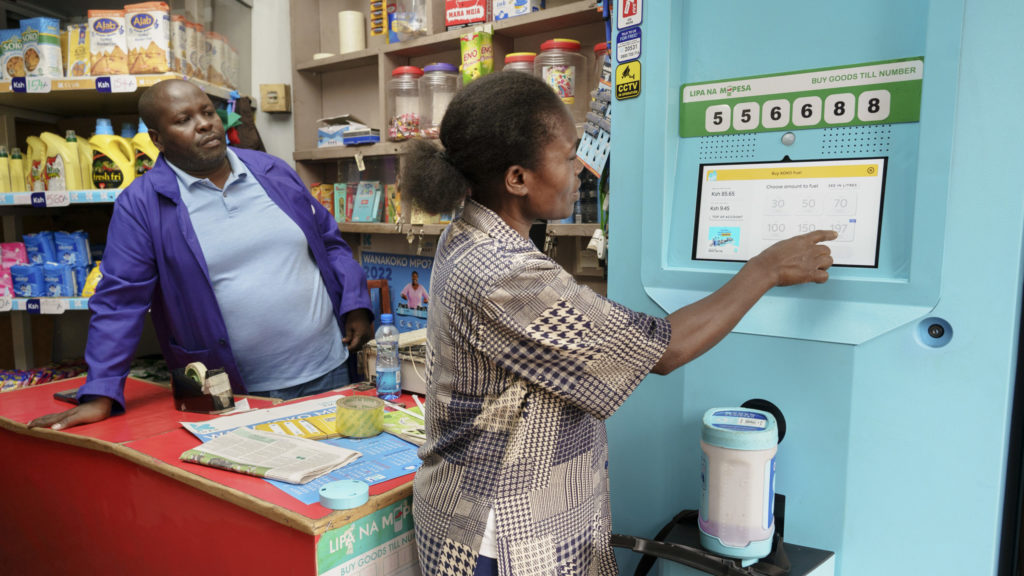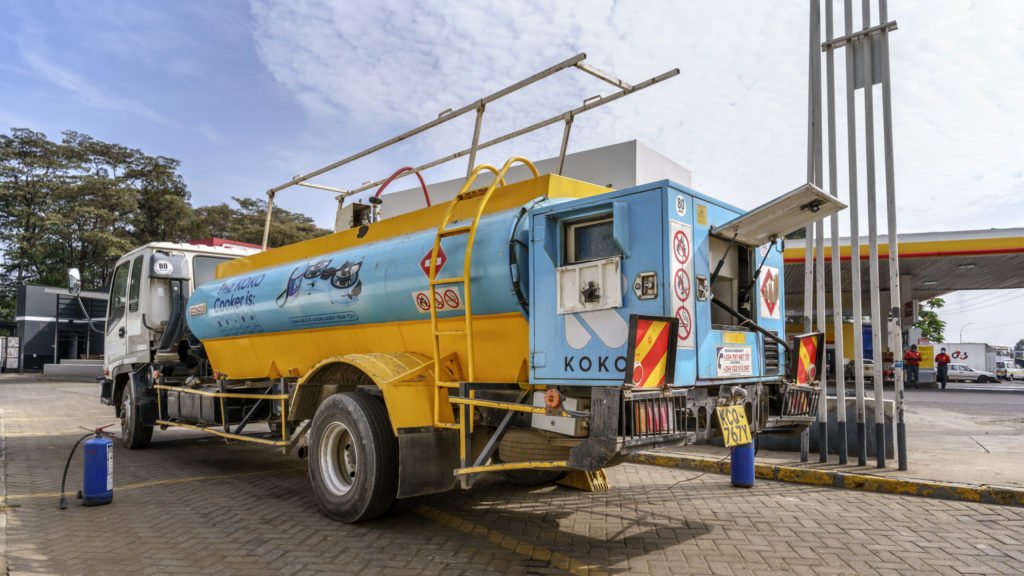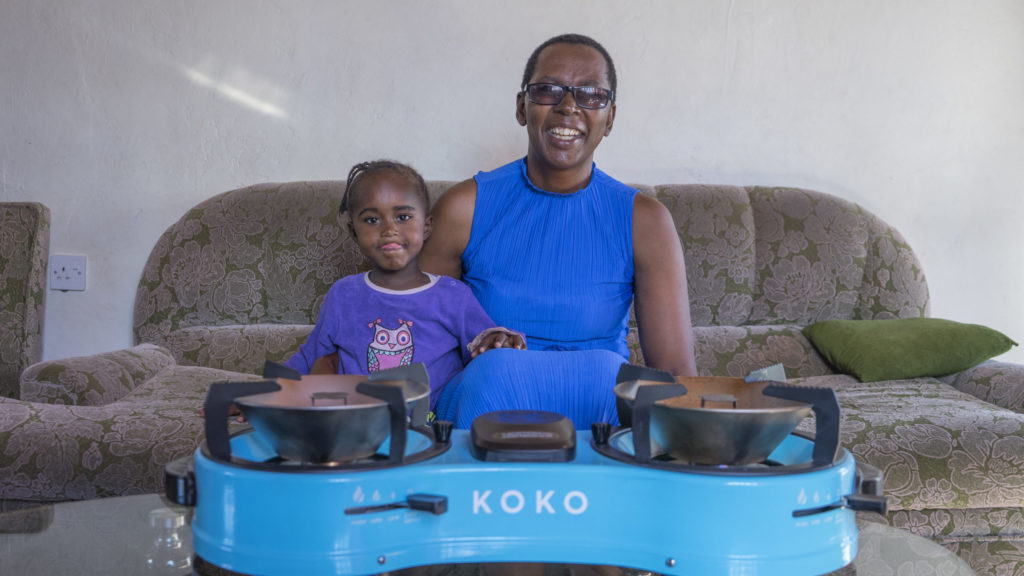KOKO Networks: Delivering Solutions, Expanding Trust
Launched in late-2019 after five years of R&D and human-centered design, KOKO Networks (KOKO) is a clean cooking technology company serving more than 550,000 urban households in Kenya.
KOKO’s innovative, tech-enabled model is undercutting demand for polluting cooking fuels like charcoal and kerosene that can contribute to deforestation and climate change. Despite shocks to the economy from COVID-19 and rising inflation, KOKO’s clean fuel network has grown beyond Nairobi to other Kenyan cities including Mombasa, Kisumu, and Nakuru, and uptake is accelerating.
Evans Omondi, KOKO’s Head of Acquisition, spoke with the Clean Cooking Alliance (CCA) about KOKO’s products and services, their recent market expansion efforts, the value of knowing your customer, and more.
This interview is part of a series of conversations CCA is having with business leaders across the clean cooking sector.

Clean Cooking Alliance (CCA): Could you describe KOKO Networks’ products and services?
Evans Omondi (Omondi): KOKO makes clean cooking affordable and easy for African households. In 2019, KOKO launched an ambitious cooking solution in Nairobi aimed at outcompeting dirty cooking fuels in the two areas that matter most to our customers: affordability and convenience.
KOKO manufactures an affordable two-burner KOKO Cooker, which runs safely and efficiently on KOKO Fuel, a liquid bioethanol produced from the local and global sugar industry. Each KOKO Cooker comes with a smart KOKO Canister, unique to each customer, which holds fuel dispensed from KOKO Fuel ATMs and docks with the Cooker at home. The experience is modern, clean, and safe and delivers savings to customers.
All of this is managed through our KOKO Cloud software that monitors the activity in the ATMs, enabling safe and low-cost last mile fuel logistics for our customers.
CCA: How big is the KOKO team in Kenya, and how wide is the agent network?
Omondi: Currently in Kenya we have over 800 employees (with about 500 colleagues in India). With recent expansions to Mombasa, Kisumu, and Nakuru, we have a total agent network of about 1,400 across the country, and it’s growing all the time.
We’re already past the half million mark on customers and expect to keep growing as we close 2022.
CCA: From a business perspective, can you tell us what it takes to launch a new network in different Kenyan cities?
Omondi: There’s a saying on my team: “Plan, organize, and track everything you are doing.” There’s a lot of preparation that goes into launching a new network, and it goes in stages, but the first big one is: How do we contextualize whatever is happening in the local market through the research team? This is what ensures that we bring the best solutions possible to our local customers.
Apart from just doing the research, we then go back to recruit, develop, and train the agent network. We hire locally across our operation, including the sales team, the fuel/cooker distribution team, logistics…this is how we gain their trust within.
Above all, we need to first ensure that our supply chain is not broken, that everything runs smoothly, and that we’re ahead of launch so that there’s no disconnect between us and our customers.

CCA: Was there anything you found different between the launch in Mombasa versus the launch in Kisumu or Nakuru?
Omondi: In every region, the preferences and habits of customers are different. For example, in Kisumu, women are the primary customers for cookers or fuel. But in Mombasa, men buy the fuel, so we try and adapt to fit the needs of the consumer in each location.
Income levels and population demographics are also different. These factors influence where we plan to launch first. We want to serve customers all over the country, but we are starting with the larger population centers, where charcoal consumption is highest.
CCA: What was the consumers’ knowledge or understanding of KOKO’s products when you launched in Mombasa (or Kisumu or Nakuru)? Were they familiar with the brand?
Omondi: Word in Kenya spreads very fast. Many people in Mombasa had seen KOKO before, because they travel in and out of Nairobi, so they were just waiting for KOKO to get to Mombasa. When we arrived, the uptake was just crazy. The power of word-of-mouth is immensely strong, and we combined it with our own above- and below-the-line marketing activities. Customer demand has been sky-high.
CCA: Does KOKO have expansion plans beyond Kenya?
Omondi: Yes, absolutely. We have already signed an investment agreement with the Government of Rwanda, but we are also in discussions with policymakers from other countries who would like to adopt the enabling framework to encourage this kind of investment.

CCA: How do you see KOKO developing over the next five years?
Omondi: Everyone here is looking at affordability and convenience and getting very health-conscious now. In the next five years, KOKO’s goal is to grow to be truly nationwide in Kenya, serving customers even in more rural areas after moving from the urban and peri-urban areas. We’re also looking at operating in several new markets, too.
CCA: How are you thinking about KOKO Networks’ expansion in light of larger market competition from other types of clean cooking solutions?
Omondi: The first thing is to work hard and make sure we’re furthering solutions for our customers. We do this by going countrywide. We extended to Nakuru; next will be Eldoret. Just a few months ago, we signed an agreement with the Rwanda government to build a countrywide network. We’ve built our model to focus on scale, and we’re working with policymakers both locally and in new markets.
But again: How do we reach our customers? What kind of experience are we giving them? What is our retention strategy? These are the small pieces we put together to ensure that once a customer walks in, they’ll continue using our products and giving us more referrals. Competition will always be there, but it is always healthy to have competition.
CCA: What advice do you have for other clean cooking companies looking to scale?
Omondi: The big thing we say every morning is: “Can you keep and maintain that relentless focus on what your customers want and need?” Especially when it comes to safety and affordability, and especially with inflation, which is what everyone is looking at.
In terms of the expansion work: Find out what is really happening with your customers by doing the research, so that when you go out there, you give them the right solutions to their problems. That is when they will trust your brand.
